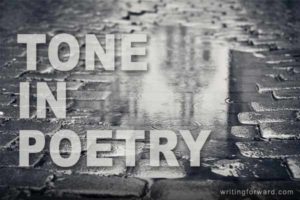
How to Construe and Convey Tone in Poetry
In literature, tone is the mood, attitude, or emotional sensibility of a written work. In poetry, tone expresses the narrator’s disposition toward the poem’s subject, the reader, or the narrative itself. We might describe a poem’s tone as irreverent, relaxed, sarcastic, solemn, jubilant, or desperate. Tone can be any emotion or state of mind, and a…Read More
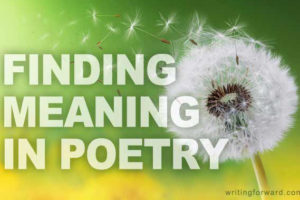
Finding Meaning in Poetry
We humans are programmed to find meaning in everything. We find patterns where none exist. We look for hidden messages in works of art. We yearn for meaning, especially when something doesn’t immediately make sense. Of course, art is open to interpretation, and some of the best works of art have produced a fountain of…Read More
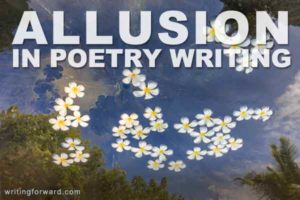
Using Allusion in Poetry Writing
As we read poetry and other forms of literature, we’ll inevitably come across allusions. An allusion is a reference to something else; it can be indirect or explicit. In poetry, most allusions refer to other works of art and literature or to historical persons or events. Cultural references are also common. Although allusion is a…Read More
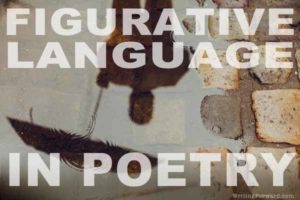
Figurative Language in Poetry Writing
What is figurative (as opposed to literal) language? Figurative language says one thing but means another. However, figurative language does not intend to deceive. There is an expectation that figurative language will be understood and correctly interpreted by the listener or reader. We get the term “figure of speech” from figurative language. In poetry, we…Read More
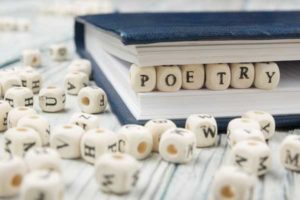
How to Analyze Poetry
An expert is someone who has mastered their craft through a process of study and practice. Poets are no different. It takes years to become an expert poet. An important part of studying poetry is analysis. Examining the form, content, and syntax of a poem helps us develop a better understanding and deeper appreciation —…Read More
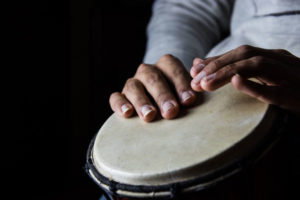
Poetry: Rhythm and Meter
Rhythm is everywhere: we hear it in the hum of vehicles and appliances. We feel it when we walk or run. We see it in the very rising and setting of the sun. Even our hearts beat to a rhythm. Rhythm is built into the way we experience and perceive the world. Merriam-Webster’s Dictionary offers several…Read More
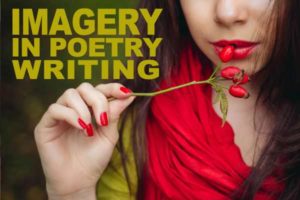
Using Imagery in Poetry Writing
When we talk about imagery, we’re usually referring to visuals — whatever we can see with our eyes. In literary (and more specifically, poetry) terms, imagery is anything that represents a sensory experience, regardless of whether it’s experienced through the eyes, ears, nose, mouth, or hands. There are various types of imagery that we can…Read More
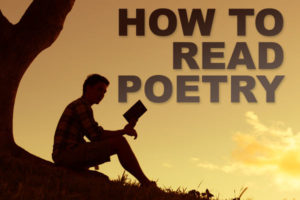
How to Read Poetry
Have you ever fallen in love with a song immediately upon hearing it? As soon as it’s over, you whip out your phone to find the song, and then you play it on repeat for the rest of the day until you know every note and lyric. It becomes your current favorite, your latest obsession….Read More
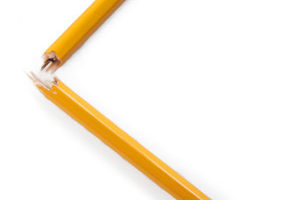
Breaking Grammar Rules in Poetry Writing
Accomplished writers respect the rules of grammar the way an acrobat respects the tightrope — grammar might be intimidating and complicated, but we need it in order to perform. Yet sometimes, an acrobat takes her foot off the tightrope. She does a flip or some other trick of physical prowess that seems to defy the…Read More
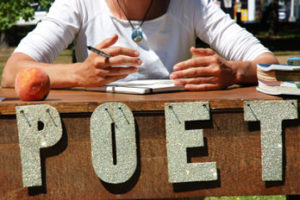
How to Improve Your Poetry Skills
Poetry writing requires no license, no education, and no experience. All you need to get started is a pen and some paper. In fact, many writers discovered their calling because they were compelled to write poetry at a young age. But there’s a big difference between writing poetry and writing good poetry. Opinions about the…Read More



